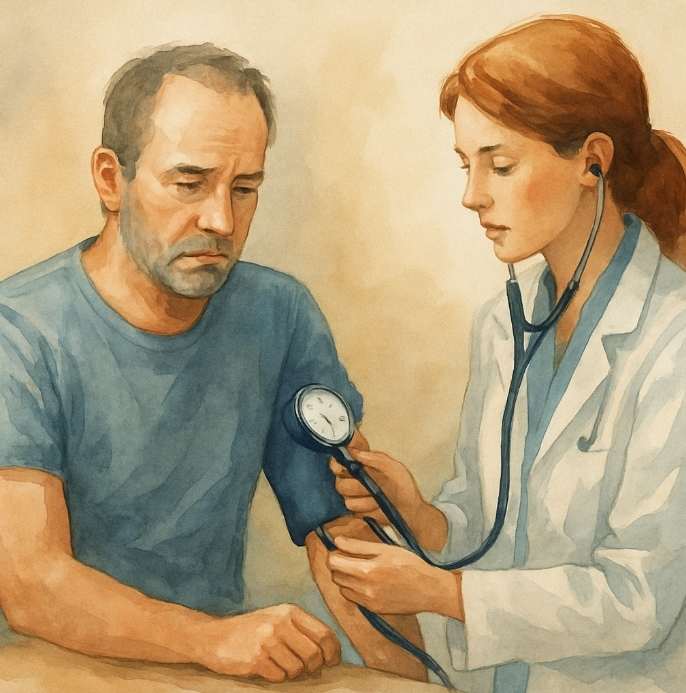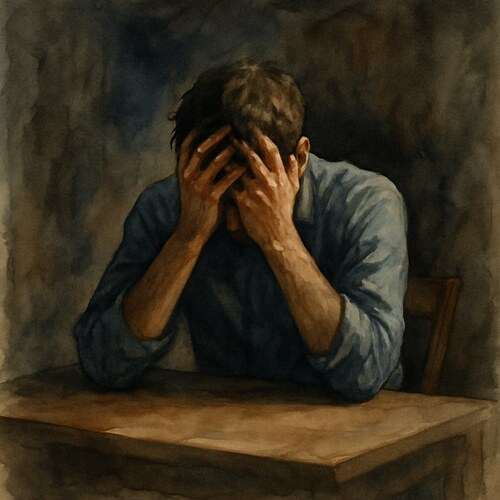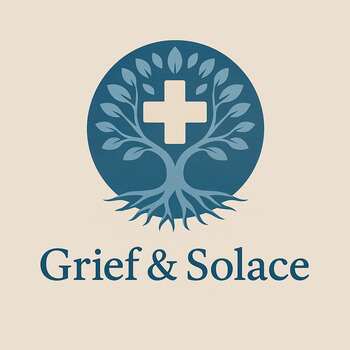Grieving Hypertension: When Pressure Builds Beyond the Heart
Grief tied to hypertension is slow and hidden, an unseen force carving away health, hope, and years that should have belonged to them.

This post blends real grief with grounded knowledge. It isn’t clinical. It isn’t distant. It’s meant to sit beside you—not above you. The story you’ll read is meant to reflect what so many feel when living through or witnessing this condition: confusion, exhaustion, and quiet forms of courage.
If what you read feels familiar, please speak with your doctor. Your pain deserves more than silence.
We Laughed at the Numbers Until the Numbers Took Him
It was just a check-up…Routine right? The kind where they ask how much you drink, and you lie, thinking it doesn’t really matter.
“140 over 90,” the nurse said. Twice. She tilted her head and advised him to “keep an eye on it.” He shrugged it off, attributing it to the coffee, the stress, or the fact that he hated being in a doctor’s office.
We laughed on the way home. He claimed he was “too stubborn to pop pills for something that doesn’t hurt.” I let it slide; it didn’t seem urgent. He still jogged every morning, made pancakes on Sundays, and kissed me like the world wasn’t ticking away.
🧠 Symptoms:
Usually asymptomatic for years
Occasionally: headaches, shortness of breath, or nosebleeds
Symptoms often appear only in severe or crisis stages
He insisted that numbers didn’t scare him. If he felt fine, he was fine. After all, his father had high blood pressure and lived to eighty-six.
But those numbers keep count, even when you don’t.
One morning, he stood up too quickly and had to grab the counter for support. Another day, he forgot his keys and reacted with frustration, not directed at me or himself, just a deep-seated annoyance that didn’t add up.
And then, quietly, he began dozing off mid-conversation.
The day it finally happened wasn’t dramatic. No collapse. No sirens. Just an unsettling stillness. Silence that wasn’t like him at all. I called his name three times before he finally responded.
Complications:
Heart attack and stroke
Aneurysm formation and rupture
Heart failure (due to increased cardiac workload)
Kidney damage or failure
Vision loss (retinopathy)
Metabolic syndrome
Cognitive decline and dementia
Causes:
primary_hypertension:
Develops gradually over years
Often linked to aging and lifestyle
Most common form
secondary_hypertension:
Caused by underlying conditions (e.g., kidney disease, thyroid problems)
Can also be triggered by medications (e.g., decongestants, birth control), drugs (e.g., cocaine), or hormonal disorders
The ER diagnosed a hypertensive episode. They explained that his pressure had likely been spiking for weeks, that his heart had been working too hard for too long, and now it was simply… tired.
They stabilized him and sent him home with a prescription and a warning.
Now, he takes the pills, monitors his blood pressure, and eats more spinach than he ever thought a person could.
But the part that stings? The laughter has grown softer now, measured, cautious, as if even joy must pass through a filter.
I wish we had taken the numbers seriously sooner. I wish we hadn’t waited for proof.
It didn’t hit all at once…but when it did, we understood that every number we’d ignored was a step toward this moment.
prevention:
Monitor blood pressure regularly
Maintain heart-healthy lifestyle
Treat underlying conditions early
Follow medication plans without skipping doses
Risk Factors:
Age (risk increases over time)
Family history of hypertension
Race (more common and severe in Black individuals)
Obesity
Sedentary lifestyle
High salt (sodium) intake
Low potassium intake
Excess alcohol consumption
Smoking or vaping
Chronic stress
Conditions such as diabetes, sleep apnea, kidney disease
Pregnancy
📘 Diagnosis & Treatment
diagnosis:
Blood pressure measured with a cuff (multiple readings needed)
Ambulatory monitoring for 24-hour patterns
Lab tests (cholesterol, blood sugar, kidney function)
ECG and echocardiogram (if heart involvement suspected)
staging:
Normal: <120/<80 mm Hg
Elevated: 120–129/<80 mm Hg
Stage 1: 130–139 or 80–89 mm Hg
Stage 2: ≥140 or ≥90 mm Hg
Crisis: ≥180 and/or ≥120 mm Hg (requires immediate care)
treatment:
lifestyle_changes:
DASH diet (low sodium, high potassium)
Regular aerobic exercise
Limit alcohol intake
Maintain healthy weight
Quit smoking
Stress reduction (deep breathing, mindfulness)
Sleep hygiene (7–9 hours nightly)
medications:
Diuretics (e.g., hydrochlorothiazide, chlorthalidone)
ACE inhibitors (e.g., lisinopril, captopril)
ARBs (e.g., losartan, candesartan)
Calcium channel blockers (e.g., amlodipine, diltiazem)
Beta blockers (e.g., metoprolol, atenolol)
Alpha blockers, vasodilators, and renin inhibitors (as needed)
Combination therapy often used
self_care:
Home blood pressure monitoring
Reduce processed and salty foods
Cook meals from whole ingredients
Use medication reminders
Build support through family or online groups
Seek help for lifestyle changes (nutritionist, therapist)
I know this is heavy, and I understand that the road ahead may feel like a tangle of loss and unanswered questions. But please hear this: you are not broken because you are hurting; you are not weak because you are afraid. You are living through something real, and survival itself is a kind of grace. You are allowed to struggle, you are allowed to hope, and you are allowed to not have all the answers today. Whatever comes next, you do not face it empty-handed; you carry every moment of love that shaped you, and that will always be enough to keep going.
🎀 Gifts to help With Hypertension
🏥 Everyday Comforts for Everyday Battles
Managing Hypertension often means needing a little extra help.
Sometimes it’s about restoring dignity, ease, or simply getting through the day with less pain.
These carefully chosen tools aren’t just items; they’re small bridges back to living.
This section is about finding practical support, never shame.
Digital Blood Pressure Monitor – A Lifeline You Can Strap to Your Arm
Hypertension often gives no signs until it’s too late. This automatic arm cuff monitor helps track your numbers daily, giving you control over something that usually hides in silence. Easy to use, clinically accurate, and ideal for catching trends before they become emergencies. Because knowledge doesn’t just feel good—it saves lives.
🌿 Paths to Healing Beyond the Map
Sometimes traditional medicine isn’t enough.
If you’re exploring gentle, alternative options to help with Hypertension,
you might find comfort in plant-based compounds like **CBD or CBG**.
*This section is not medical advice, just a door left open.*
USA Medical Heart- Quieting a System That’s Always Under Pressure
Stress, poor sleep, and inflammation all push blood pressure higher. This Total Pack combines broad-spectrum CBD, calming herbs, and circulatory support to help ease internal tension and support cardiovascular health. It won’t replace meds. But it offers a quiet assist to a system stretched too thin.
Need a Different Path Forward?
Every journey through grief looks different. Choose the next step that speaks to where you are now:
When You're Ready to Start Healing
Healing doesn’t mean forgetting.
It means finding small ways to carry your grief with strength and grace.
These are the stories, tools, and gentle steps to begin walking forward…at your own pace.
When You're Still in the Thick of It
Sometimes healing feels like a lie.
If you’re not ready to move on…if the pain still roars louder than the world wants to hear…this is the place where you’re allowed to feel it.
No sugarcoating. No pretending. Just truth.
When You're Holding on to Who’s Still Here
Grief reminds us to love louder.
If someone you love is still with you, this is your place to celebrate them, honor them, and create new memories while there’s still time.
Joy and sorrow can live side by side.






